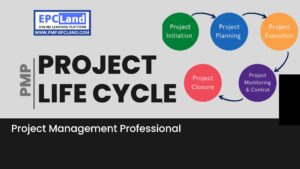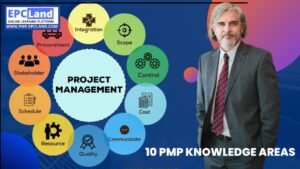Table of Contents
ToggleWhat is Project Management
Project management is the application of processes, methods, skills, knowledge and experience to achieve specific project objectives according to project acceptance criteria within agreed parameters. Project management has the end result of being constrained by tight time frames and budgets.
The main factor that makes project management different from simple “management” is that there is an end result and a finite amount of time, unlike management which is an ongoing process. For this reason, project specialists need a wide range of skills. Often technical skills, and certainly people management skills and good business acumen.
Attempt Quiz on Project Management

Time's up
When do you use project management?
A project is a separate activity and occurs when an organization wants to deliver a solution that meets their requirements within an agreed budget and time frame. Projects require teams of people to temporarily come together to focus on a specific project goal. Therefore, effective teamwork is critical to a successful project.
Projects require teams of people to temporarily come together to focus on a specific project goal. Therefore, effective teamwork is critical to project success.
Project management deals with managing individual work packages to achieve specific goals. How you manage your work depends on many factors.
The scope, importance and complexity of the work are obvious factors.
Moving a small office and organizing an Olympic Games share many basic principles, but present very different administrative challenges. Goals can be expressed as:
- outputs (e.g. new headquarters building);
- Outcomes (e.g. moving employees from multiple locations to a new headquarters);
- Benefits (e.g. reduced travel and facility maintenance costs);
- Strategic goals (e.g. doubling the stock price of the organization he will in 3 years).
Don’t Miss the 1000+ MCQ questions & hundreds of quizzes on PMP Knowledge Areas and Various important sections.
How Project Management Helps in managing Projects
A project can be a very complex undertaking that requires a great deal of effort and resources. Whatever your goals, applying the principles of project management can keep your initiatives running smoothly. Without good project management principles, projects are handled haphazardly and are much more risky which can be:
- project failure
- project delays and
- over budget.
Understanding the basics of project management will increase your chances of a successful project. Regardless of the industry or niche your company operates in, our project management methodology and framework can help guide your project in the right direction.
Why do we use project management
Project management aims to produce a final product that brings about favorable change to the organization that initiated the project. It is the initiation, planning and management of the set of tasks required to deliver the final product. Projects that require formal management include:
- Create something new or altered, tangible or intangible.
- Has finite duration:
- clear beginning and end.
- It can be complicated with respect to the work or groups involved.
- Change management is required.
- You need risk management.
Investing in effective project management has many benefits, including:
- Increase the likelihood of achieving desired results.
- Ensure efficient and optimal use of resources.
- Satisfying the various needs of project participants.
Who Uses Project Management?
Everyone manages projects, even if they aren’t officially called “project managers.” Have you ever planned an event? This is a project you manage as a team, and project management is a life skill for everyone. More formally, the project is visible to all industries and companies.
- transportation and infrastructure
- Information technologies
- product manufacturing
- build and build
- finance and law
Core components of project management
- Clarify why the project is needed.
- Gathering project requirements, specifying deliverable quality, estimating resources and schedule.
- Developing a business case to justify the investment.
- Secure corporate agreements and funding.
- Managing and motivating the project execution team.
- Developing and implementing a project management plan.
- Manage project risks, issues, and changes.
- Monitor progress against plans.
- project budget management.
- Maintain communication with stakeholders and project organization.
- vendor management.
- Complete the project in a controlled manner as required.
What are the outcomes of project management?
Artifacts are the resulting items within a project. This is the result of targeted work in the project process.
Project management services can be internal or external. Internal achievements are work done within your organization and are not visible to users outside your organization. An external service is work performed for a client, customer, or stakeholder for the purpose of generating revenue. In any case, this usually means delivery is expected by a certain date.
Project deliverables are often associated with goals, but there is a distinct difference between the two. Deliverables are the actual items created to move the project forward, and Goals are the overall goal. So, if you want to gain more insight into your market base, this should be your goal. Writing a report to achieve this goal is an accomplishment.
Similarly, don’t confuse results with milestones. Milestones are specific marks or points in a project that have achieved something important. Once you reach a milestone in your project, simply move on to the next phase. However, for achievements, the final result should be presented to the individual or team. Within a project there may be one or more artifacts. Submitting an achievement means you’ve hit a big deadline or an important milestone. Project outcomes are often dependent on other outcomes being completed first. This is common for projects with multiple milestones such as: B. Event, managed. These linked deliverables can be easily mapped with a Gantt chart that automatically updates dependencies when project deadlines change. In summary, deliverables in project management are the concrete action items that must be delivered to complete the project.























